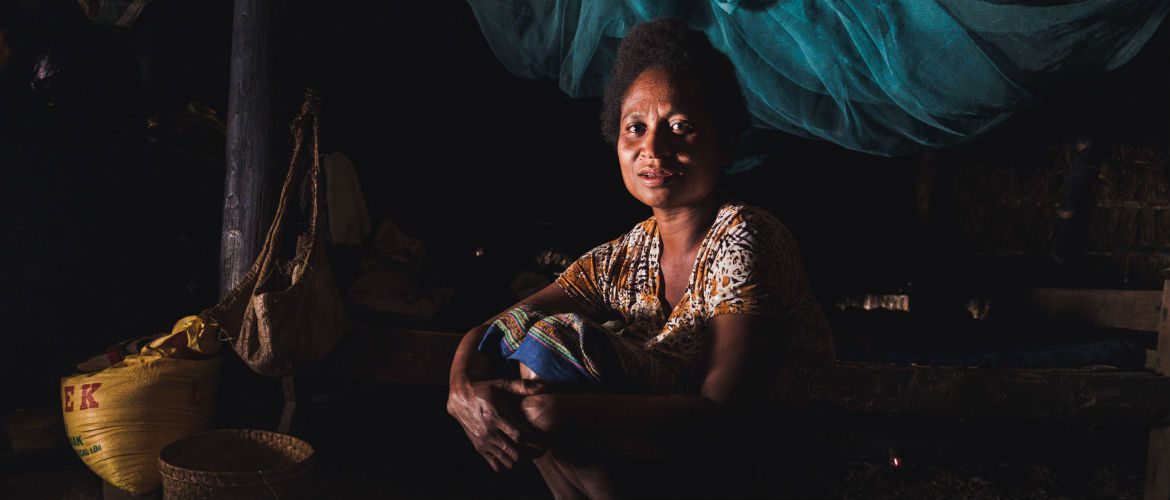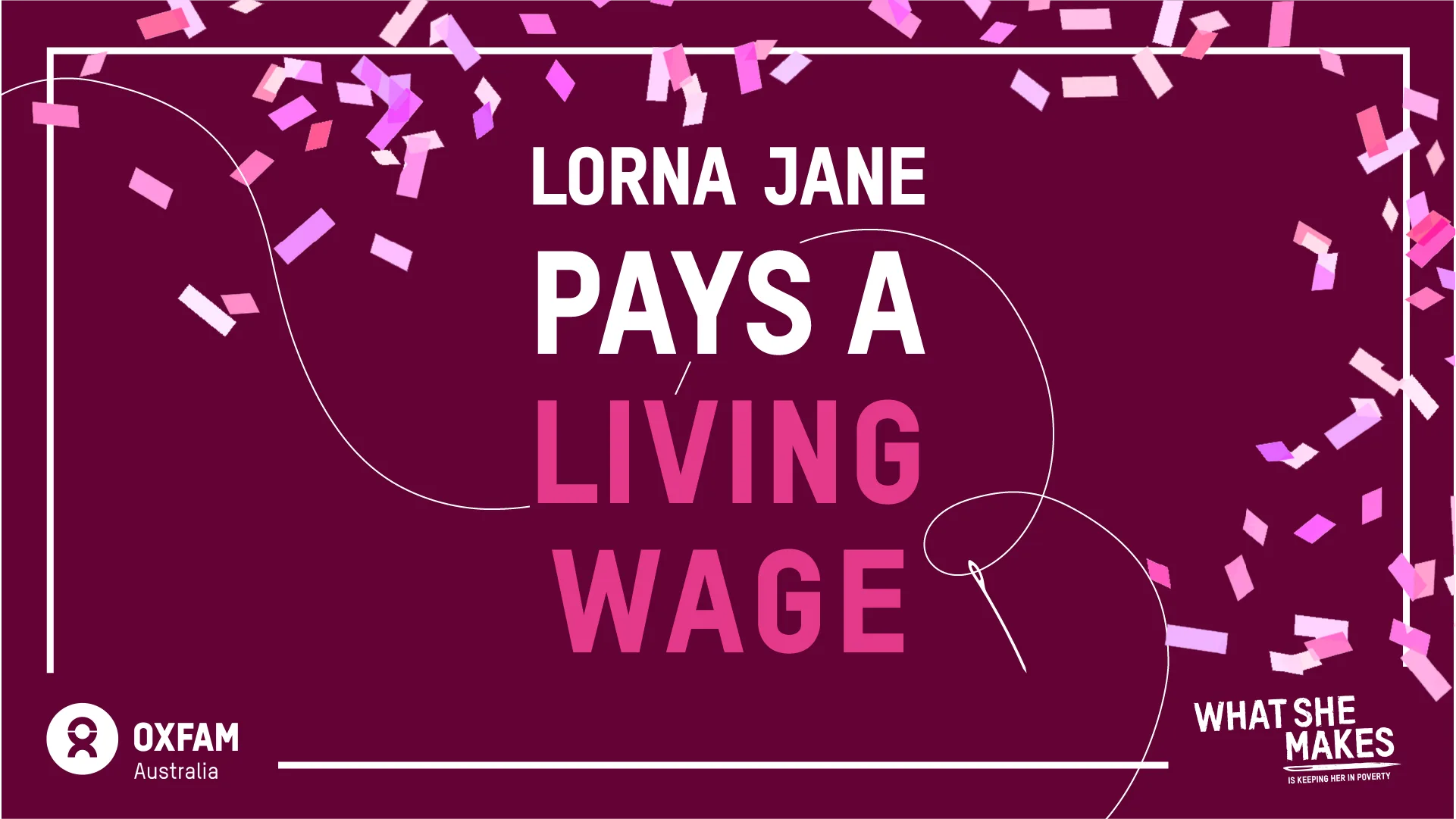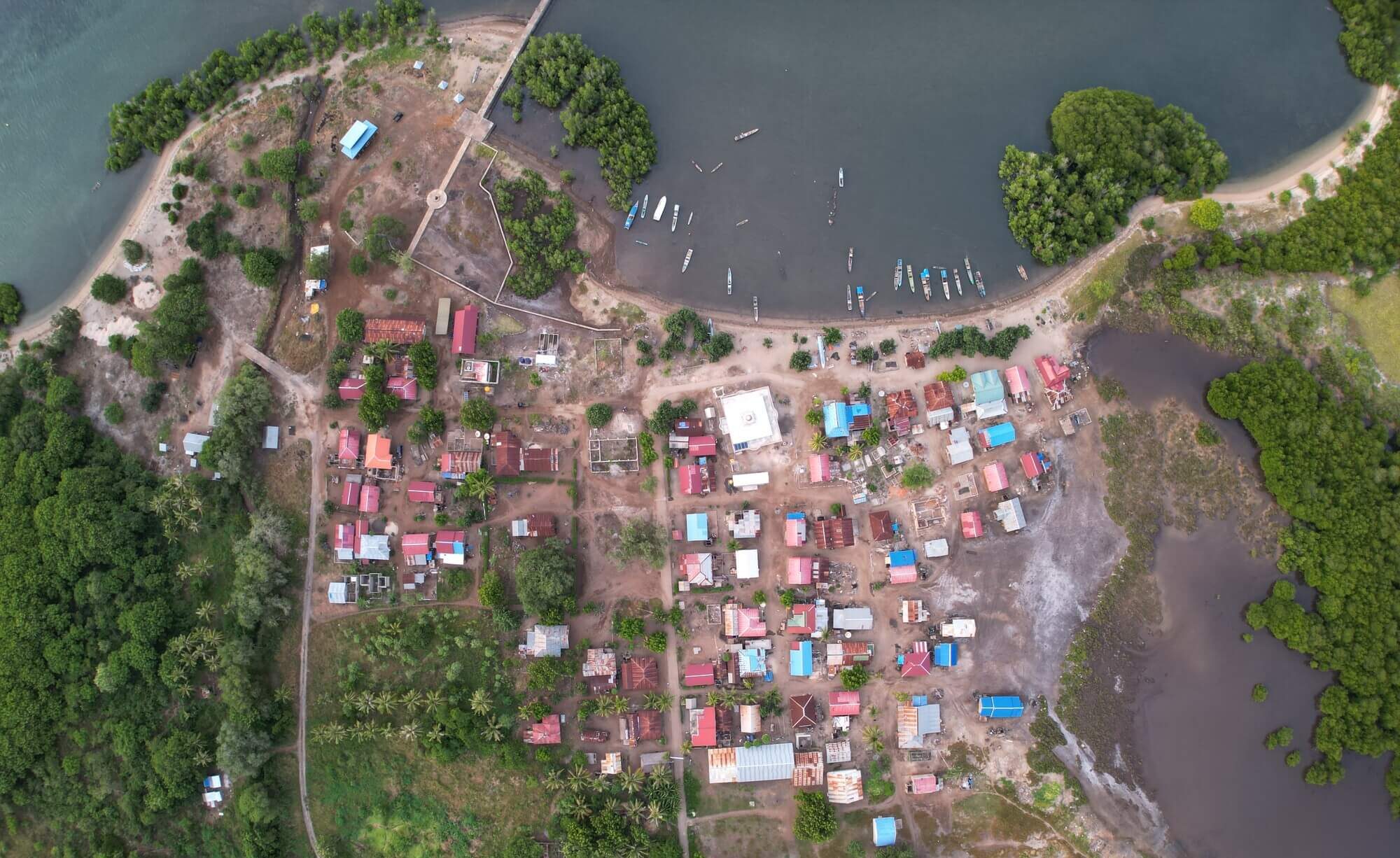Sabina lives in Tumin village in Oecusse — a hot, dry region of Timor-Leste.
There is a large white cross in the ground just across the road from Sabina’s house. It is there to remember the villagers who were killed in 1999, after the vote for independence.
The memory of that time is still strong for the people of Oecusse. Sabina is emotional when she recalls that she and her husband had to hide in the mountains for months and came back to find everything burnt to the ground.
“My name is Sabina Foni. I was born here. I was about 13 years old when I got married because I have four children.”
“When we just got married, we didn’t even have a plate, we had no spoon, pot, or any kitchen stuff.” says Sabina.
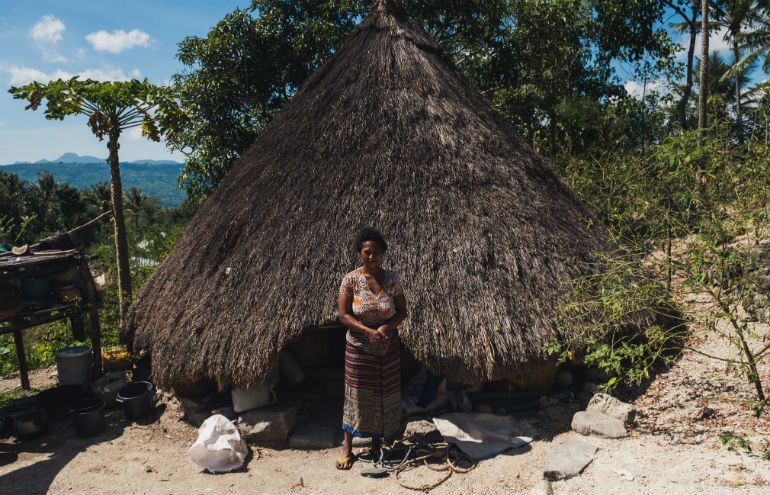
Sabina and her family have endured years of erratic weather, making it hard to grow enough food to eat.
Sabina has tears in her eyes when she talks about times when there’s been no food at all.
“The most difficult things were money and food. We have our family but if we have no money and food, what can we do? We have no other way, we have to work for other people.”
Sabina and Mateus have struggled for years. Once, they planted corn and rice in their garden but the grasshoppers ate all the leaves. When it came time to harvest, there was no food left.
“That was for one year in 2013. After that, in 2014, there was not enough water,” says Sabina. “The soil was too dry and the corn could not survive and grow. In 2015, 2016 and 2017, it has changed a little bit but there’s still not enough food.”
They collect food from their garden from March to June — by July, there’s nothing left.
“There is no more food from July. So that’s when we have to look for work, maybe going to Oecusse town to look for something.
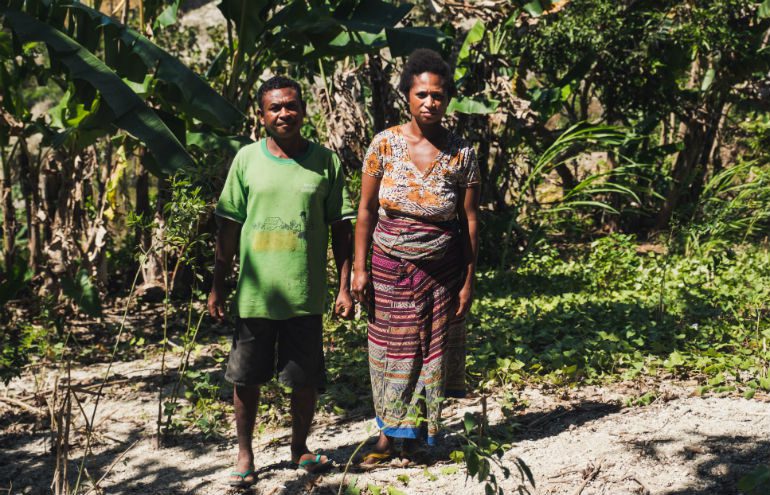
“I only worry about the money or the food, because if there is no money, there is no food. You cannot do anything.”
Sabina wants her children to be able to study. And that’s what they want too. But there’s a problem.
“My children told me they want to continue to study, but the problem is that in this house we don’t have enough food or money,” Sabina says.
“I just worry about them when there is no food, and hope that they don’t get sick.”
Mateus too worries about his children’s future: “I always tell them about our difficult life, so that they can start to think about the future and how they can fight with their heart.”
For Sabina, the worry is all too much: “I think that my brain is so tired, it can’t think about it anymore. I can’t think about this life anymore, my brain can’t handle it.”
Our neighbours are facing the challenge of a lifetime — and we are right there beside them. Thanks to the generosity of our supporters, we are on the ground in Timor-Leste, working against time to help vulnerable communities survive hunger and hardship.
With your support, we can give families like Sabina’s the resources and training they need to grow drought-resistant crops that suit their changing climate and produce harvests to eat and sell the surplus. Together, we can help them rebuild their lives.
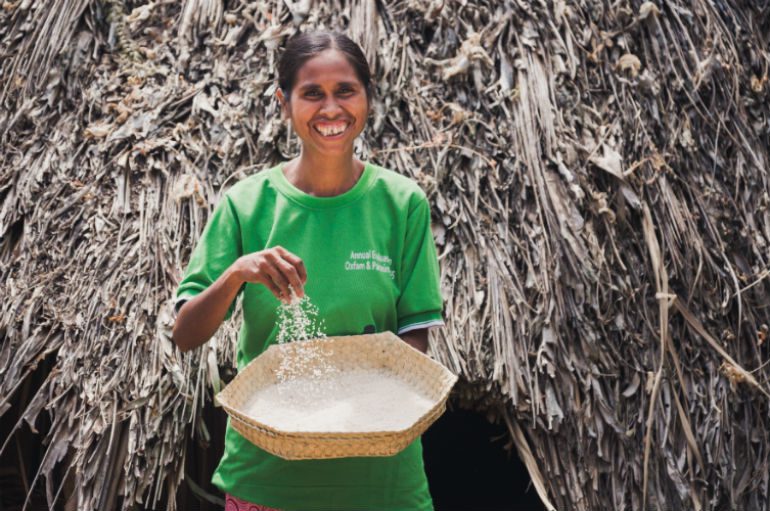
You can stop hunger
Donate today to help our neighbours in Timor-Leste survive the hungry season.
Photos: Vlad Sokhin/OxfamAUS
